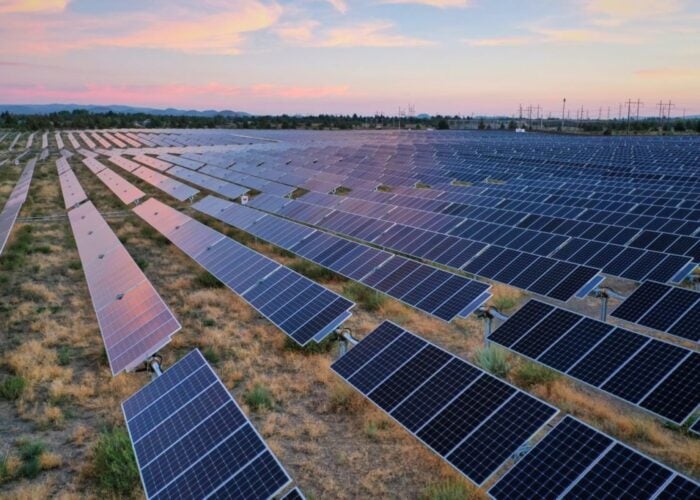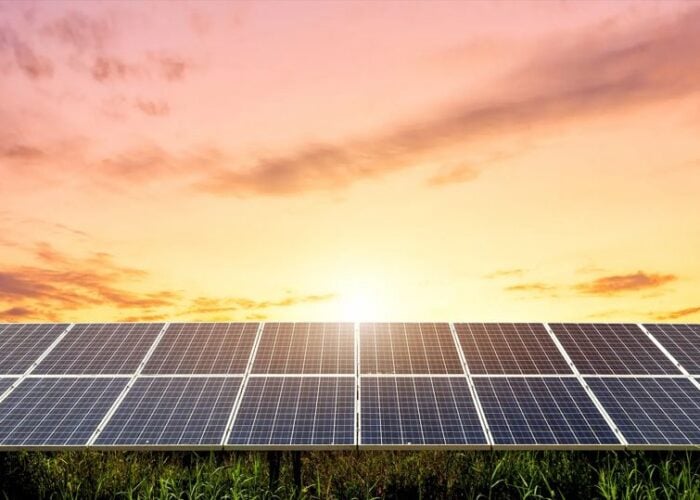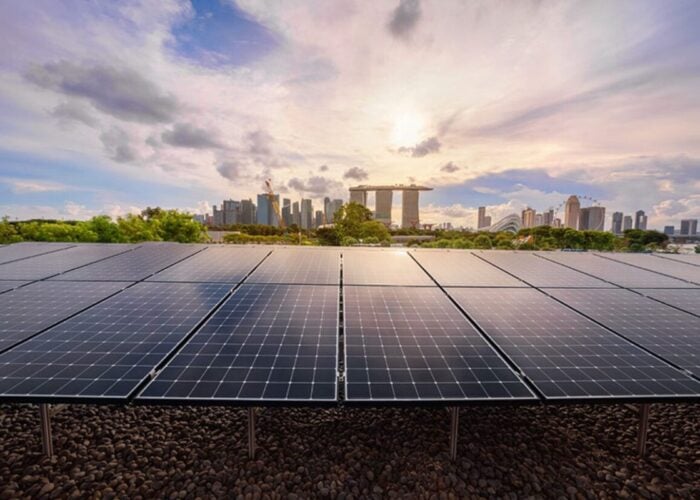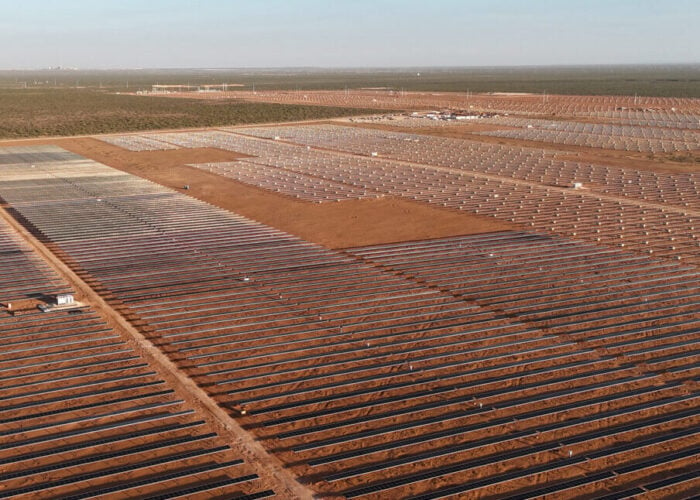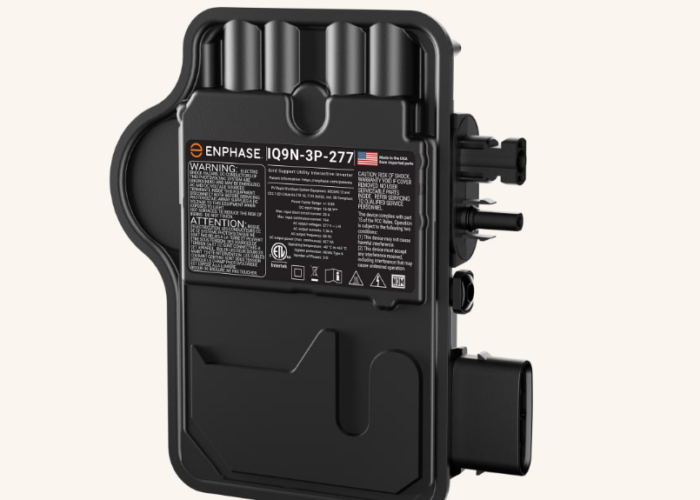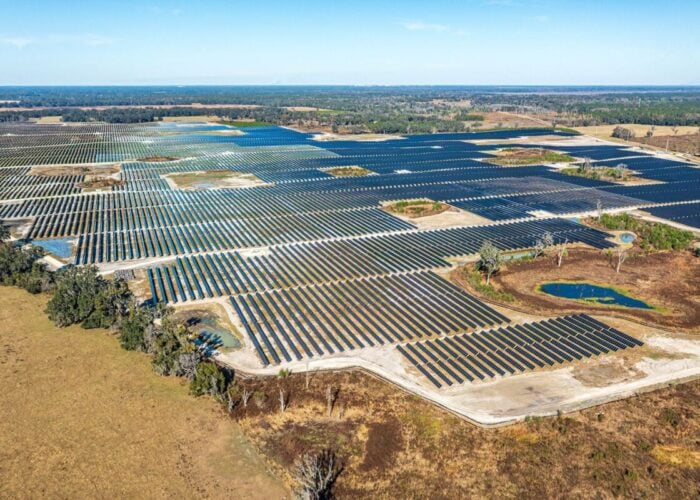
US solar developers reeling from COVID-19 impacts were told this week they will be offered both more time to qualify for tax credits and the continued duty-free import of bifacial modules.
The US government made good on its promise earlier this month of a reprieve around tax credits for solar (ITC) and wind (PTC), announcing this week renewable developers will have an extra year to qualify for the government incentive.
Try Premium for just $1
- Full premium access for the first month at only $1
- Converts to an annual rate after 30 days unless cancelled
- Cancel anytime during the trial period
Premium Benefits
- Expert industry analysis and interviews
- Digital access to PV Tech Power journal
- Exclusive event discounts
Or get the full Premium subscription right away
Or continue reading this article for free
The extension of the safe harbor provisions – which firms use to put down the initial 5% of project costs to fully reap the ITC and PTC credits – is meant to help operators facing COVID-19 delays, the US Treasury and the Internal Revenue Service (IRS) said as they outlined the changes this week.
Existing ITC rules mandate a phase-down of the incentives from 2019 (30%) to 2020 (26%) and 2021 (22%), with projects required to complete construction within four years to qualify for safe harboring. The new timetable will give firms five years to do this.
In addition, green energy players paying for components in late 2019 were previously required to receive the goods within three-and-a-half months to be eligible. Instead, the new Treasury and IRS rules will push back this deadline until 15 October 2020.
On Wednesday, law firm Stoel Rives LLP said the update to the so-called '3½ month rule' will help solar players purchasing modules in late 2019 but witnessing supply chain delays from COVID-19. “[The changes] should make financing transactions easier for impacted projects,” the firm said.
Judge blocks Trump’s attempts to undo bifacial duty exemption
The one-year extension to safe-harboring delivers a win to a bipartisan group of US senators. From Republican Lisa Murkowski to Democrat Ron Wyden, the lawmakers had called on the Treasury to enact this very change, arguing that it would ”help preserve hundreds of thousands of jobs.”
US solar body the Solar Energy Industries Alliance (SEIA) – which has documented the stark US solar job losses from COVID-19 – thanked the Treasury for the “additional layer of clarity” from the safe-harboring changes. “Today’s action shows that solar energy is an economic driver with bipartisan appeal,” SEIA said.
The solar association witnessed yet another victory on a separate front this week, as the US Court of International Trade blocked a measure – the lifting of an import duty exemption for bifacial modules – that SEIA has long campaigned against.
On Wednesday, judge Gary S. Katzmann paralysed a move by Donald Trump’s US Trade Representative (USTR) to axe an exemption the department had itself introduced last June, and bring bifacial solar components again under the scope of the Section 201 import duties.
Katzmann – who last December slapped a preliminary injunction on the USTR’s u-turn – said this week he takes “no position” on whether bifacial’s exemption is justified. Instead, he said the Trump administration had failed to make a case for why the injunction should be lifted now.
In a statement on the same day, the USTR said it “strongly disagrees” with judge Katzmann’s analysis. “The solar industry and the jobs it represents are important to this country, and USTR will take all necessary and appropriate steps to ensure that its safeguard relief is effective,” it said.
Safe-harboring and Section 201 exemptions: The documents at the centre of this week's changes
- US Treasury/IRS Notice 2020-41 setting out the safe harbor changes: See here.
- Analysis by law firm Stoel Rives LLP of the safe harbor changes: See here
- Ruling by judge Gary S. Katzmann on bifacial's Section 201 exemption: See here
- USTR's statement on the ruling on bifacial's Section 201 exemption: See here
PV Tech has set up a dedicated tracker to map out how the COVID-19 pandemic is disrupting solar supply chains worldwide. You can read the latest updates here.
If you have a COVID-19 statement to share or a story on how the pandemic is disrupting a solar business anywhere in the world, do get in touch at [email protected] or [email protected].

